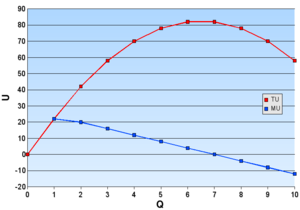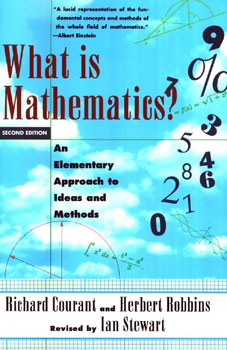Free markets are presented by Market Anarchists or Apologist of capitalism as the panacea we should all be aiming for. This post will attempt to show why this is based on non-existant ground.

- Image via Wikipedia
It is something I stumble onto extremely regularly lately, people who claim that only a free market economy would be capable of efficiently allocating resources, or maximizing the utility of most people. That any other system will by definition lead to disutility.
This is a very bold claim, and one is well justified in asking what proof we have that such a system would indeed have this result. And this is where the problems start. The most common answer, especially from proponents of the Austrian school of economics or people accepting most of their arguments, is that this is not provable. Rather, this is based on logical deductions from axioms.
This capability of the markets is then contrasted with mathematical proof. That is, the fact that free markets would lead to efficient allocation etc is as solid as saying 2+2=4.
However, if this kind of argument is espoused, then a major flaw appears. Mainly that mathematics, and other axiomatic concepts, cannot tell us anything useful in isolation from reality and empirical evidence. To give you an example, to claim that markets are axiomatically defined as always leading to pareto efficiency does not tell us anything about which system humans should organize their societies around. It simply means that the concept of the markets is separated from what is commonly referred as the markets now.
Under this kind of proof, the market can easily be, say, a communist society. But if whatever will lead to Pareto efficiency will automatically be a “free market”, as humans we still face the problem of discovering which kind of system will lead to Pareto efficiency. To turn around and say that the free markets will, and by that imply a very particular system based on particular property rights and laws, is an equivocation fallacy.
The problem of course, is not that some concepts have been turned into axioms, as by itself this practice wouldn’t lead to any normative conclusions, much like pure mathematics can’t either. The problem comes because Free Market economists have attempted to sneak descriptive concepts as axioms, something which would allow them to make claims about reality. For example, the idea that a human always acts to fulfill his strongest desire first.
But the problem with such an act, is that these descriptive facts have been conceived out of pure air. Without empirical proof, any such “axioms” introduced run the problem of having minor errors, minor facts that the original thinker didn’t know about. And as most people know, the slightest error in a purely logical edifice, can lead to a wholly wrong result.
Which is why actual science requires empirical observation, repeatability and falsification as it attempts to iron out errors of human thought or modify the facts, ever so slightly, so as to make the rest of the logical deductions from the facts, as solid and correct as possible.
Proponents of the Free Markets do not do this however. They start from a few basic premises, a few of which should have been empirically tested before being accepted, and then build based on pure logic from there. They then claim that like mathematics, the result, as long as no errors in the calculation have been found, cannot be anything but correct.
And most importantly, real empirical data that refutes the results, is not used to find errors in the premises, but rather dismissed. It is claimed that if logical results do not match the reality, then there’s some factor in reality that skews them (what it is, is not important but it’s most likely the government). But this is the problem! What exactly is the factor might be critical, as the factor might be that one of the “axioms” is wrong!
Market Anarchists would have us believe that a free markets within a very particular society would work for the best result and thus, we as humans should aim for this particular society structure. But this is not proven. It is asserted. It starts from the premise that a Free Market works in a particular way and that is based on assumption of how reality and particularly human psychology works!
So why is the concept of the Free Markets useless? If “Free Markets” is defined as being a utilitarian result, then anything that achieves this result is a “Free Market”, and to find that “anything” we’ll again need to use empirical evidence. If Free Market is logically concluded from a few premises to lead to a utilitarian result in a particular society, then unless these few premises are empirically proven, we cannot and should not trust the results, nor aim for that particular society.
In the end, the Free Market concept is useless because it tries to prescribe reality independently of any empirical evidence. And like all other such independent concepts, like mathematics or language it can either tell us nothing, or lead us to the wrong path based on equivocations.
![Reblog this post [with Zemanta]](https://i0.wp.com/img.zemanta.com/reblog_e.png?w=980)
